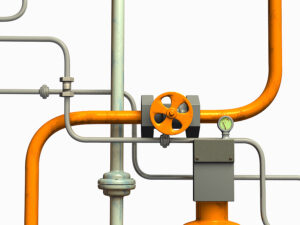EBA: Biogas’ contribution to a climate-resilient water system

The biogas value chain, closely linked with water cycles, offers solutions on multiple fronts: it supports wastewater recovery and water purification, enhances soil health, and provides a new source of water for irrigation.
Climate change increases the likelihood of droughts and makes them more severe and prolonged.
Rising temperatures modify precipitation patterns and affect snowpacks and glaciers, which act as natural water reservoirs by releasing water slowly over time.
This leads to drought and water stress, significantly impacting agriculture and, more broadly, soil health. Today, 60 to 70% of European soils are unhealthy1 due to climate change.
A holistic approach to address water stress as a critical part of climate change mitigation is essential.
The whole European bioeconomy, including the biogases value chain, will need to assess their efforts to tackle this global challenge.
Enhancing water circularity and resilience with biogases
Water circularity is integral to the biogas value chain. Municipal wastewater (sewage sludge) and industrial wastewater can be used as feedstock for biogas production via a water purification process.
In municipal wastewater treatment, biogas is generated from the remaining sewage sludge after water purification.
In industrial wastewater treatment, an additional step enables the production of biogas using wastewater as feedstock. This reduces the waste load and the need for the following energy-intensive purification processes.
Biogas plants can also address water stress: digestate, used as an organic fertiliser, increases the organic matter in soils, improving their water retention and resilience.
Additionally, advanced cleaning technologies, such as innovative combinations of ultrafiltration (UF) and reverse osmosis (RO), allow pioneering plants to produce clean water from digestate, which can be used for industrial processes, maintenance of green areas, or agriculture, further alleviating water stress.
Many biogas plants recycle also the digestate to reduce on-site water consumption.
A water strategy to boost water resilience and sustainability
On 17 June 2024, the Council of the European Union highlighted “the important regulating role of water cycles for ecosystems, human life and the functioning of the economy and our society” in its conclusions on the mid-term review of the 8th Environmental Action Programme.
To ensure the preservation of this vital role, a comprehensive Water Resilience Initiative is essential and long overdue.
The strategic initiative should ensure the benefits of biogas plants are fully utilised, including the use of clean water from digestate for various applications and the valorisation of the digestate itself to enhance soil properties.
An integrated EU approach to water, which could incorporate water-related criteria into energy policies, would help enhance water resilience and sustainability.
Besides, green waters, held in soil and available to plants, are crucial for agricultural resilience. EU policies should reward agronomic practices that enhance water retention, such as using digestate or implementing sequential cropping as feedstock for biogas production.
A higher focus on innovative water-saving technologies in biogas plants would also help address water resilience and sustainability challenges.
EBA actively participates in the European Commission's Research and Innovation program. EBA is a partner in the FER-PLAY project and has also participated in the SYSTEMIC and Nutri2Cycle projects.
These initiatives aim to advance technology and knowledge sharing, particularly in upgrading and applying digestate, which ultimately contributes to boosting water resilience and sustainability.
EBA is also a member of the Water Resilience Coalition, a group of 30 organisations dedicated to prioritising water issues in the new European Commission mandate.
















